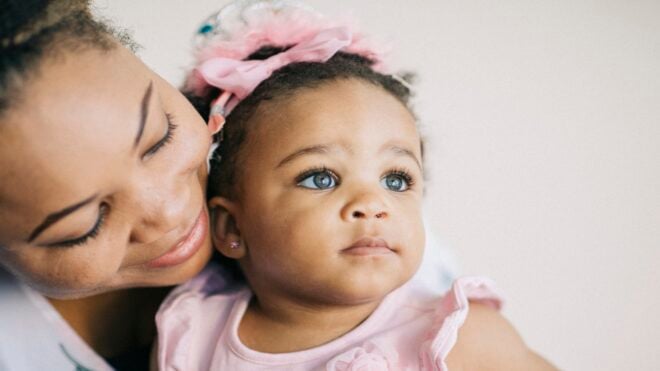If you're like me, you might worry about your child making a mistake that could lead to them being locked away in a juvenile detention facility.
If your family is Latino or African-American, there's a shockingly high chance that just might happen. It's a hard truth to face, but the numbers don't lie. Based on current trends, one in every six Latino men and one in every three African-American males will face incarceration, with the numbers only slightly differing for females of the same ethnicities. For white males the number is far less, averaging only one in 17. What's worse is that the juvenile justice system is aware of these statistics, but at a loss as to why it occurs, or further, what can be done to prevent it.
RELATED: Teen Problem Behavior: What's Normal and When to Step In
Since last winter, I have volunteered as a mentor for teenage girls through an organization called WriteGirl. One facet of the organization places professional women writers inside an all-girls juvenile detention center where we teach the basics of creative writing and seek to inspire the girls to make positive changes in their lives. My experience with these young women has opened my eyes to some very real problems occurring in our society, things which I believe directly impact whether or not an adolescent ends up behind bars.
What I want to tell you, as one mother to another, is that you do have the power to prevent your child from winding up in a juvenile detention center. The kids that are incarcerated have frighteningly similar, heartbreaking stories of neglect, abuse and instability – and if we listen, we can learn from their experiences and make the effort to protect our children, and the children we meet, from walking down a similar road.
1. Be the person you want your child to be.
It blows my mind when parents curse, scream, hit and otherwise act out, then expect their children to behave better. Don't be blinded by your own actions. If you are misbehaving, you are modeling that behavior to your child, and every child that comes into contact with you. A child learns from example far more than instruction – and it is your duty to demonstrate what a responsible, loving, and committed parent looks like. Most of the girls I work with have had traumatic childhoods, filled with parental neglect, rage, and dysfunction. I wonder if those same girls would be incarcerated had they had stronger role models in their lives.
RELATED: Yelling at Teens Has Bad Long-Term Effects
2. Treat a report of abuse like the absolute truth, and do something about it.
Recently, a detainee wrote a poem about being sexually assaulted by her father as a young child. The poem shook me to my core. As a survivor of sexual abuse, I understood the pain and confusion that comes from being violated by an adult. Later, the young lady who penned the poem shared with me that when she told her mother about the abuse, her mother called her a liar and they never spoke about it again. This girl was failed not just once, but twice. As a victim of abuse, she deserved to be protected and helped through her experience. The ultimate lesson for her was that she could not trust people in positions of authority. A child who learns this will struggle to follow rules, as they've already determined those who make the rules have the potential to hurt them.
3. Listen more than you talk.
Parenting isn't about professorial lectures. It is about guidance and protection. Our No. 1 goal is to produce healthy, confident, capable members of society, and to do that, we need to first understand what our children are going through. We can only do that by listening, fully and regularly. Many of the girls I work with love when the volunteers arrive because they finally get a chance to be heard. If you find yourself talking more than your child, try to take a step back and actively listen. You'll be amazed at how much a child, and even a teenager, actually wants to share with you.
RELATED: Raising a Teen is Harder Than it Looks
4. Set goals and work toward achieving them.
Hope is a powerful motivator. When someone has hope, they believe in the possibility of tomorrow. Without hope, they struggle to get through each day. One way to instill hope and motivation is through setting goals and working towards achieving them. Model this behavior to your children, and help them also set manageable goals for themselves. Having a path to success is a great way to build confidence and provide the necessary tools for living a life with purpose.
5. Don't make excuses.
You are fallible, and at some point, you will make a mistake. Use that mistake as a tool for teaching your child how to be responsible for your own actions. Many of the children I work with don't have a clear understanding of how their actions impact situations or lead to consequences. When we talk, these children share stories of parents who do harmful, hurtful things and don't make amends or admit to having done wrong. This sets up a system of blame that the child easily perpetuates. A way to break that cycle is to acknowledge personal responsibility and then make an effort to fix the mistake. A child who learns this skill early on will be able to understand their role in situations and accept the consequences of their actions.
RELATED: 10 Must-Reads For Parents of Teens
6. Get help when you need it and give help when you can.
There is no shame in accepting a helping hand when you need it. Asking for help when you cannot go at it alone is crucial for both you and your children. They learn that you're willing to put your pride aside to do what is best for you and them, and they learn how to speak up and receive assistance when required. That's not where it ends, though. Research has found that helping others is beneficial to our health as well as to others. In a rural village in Uganda, a class of impoverished students banded together to donate every month to an organization in the United States that mentors at-risk boys in fatherless homes. These students, who themselves were recipients of aid programs, took great pleasure in being the ones who could make a difference for another. Being able to give back is essential to feeling empowered and important, and is something our kids need to experience.
RELATED: 8 Signs of Depression in Teens
7. Demonstrate unconditional love every single day.
The litmus test for whether or not a parent is "good enough" is this: are your actions born of love? If not, it's time to reevaluate the choices you've made and make better ones in the future. Love does not hurt, it doesn't lie, and it doesn't vanish. A child should never believe that their parents' love for them depends on their behavior. Rather, they should know that regardless of their actions, they are loved completely, wholly and permanently. Having a strong foundation of love provides a child with a safety net to fall and get back up again. But when a child believes that love is a transient thing, something that comes and goes on a whim, they are less likely to take chances in life – which can lead them to making the same mistakes over and over again.




